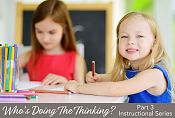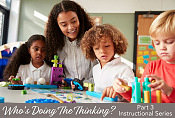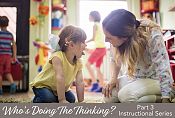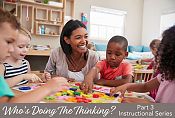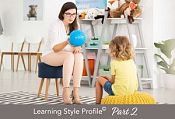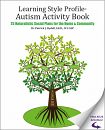Sale thru 4/30/25
Learning Style Profile© PART I: Building The Capacity For Socially Appropriate Conversation In Young Children With Autism Spectrum Disorder #e213
Presenter: Patrick Rydell, Ed.D., CCC-SLP
Learning Style Profile© Introduction Course
Learn strategies to help children develop a social-communication “game-plan” to initiate, maintain and respond to others in naturalistic contexts.
"This has completely shifted my way of thinking as an SLP and how I structure therapy. All of the topics covered were relevant. He did an amazing job outlining all of the principles of LSP."
– L.V., prior course participant
Read more comments about this course!
This course introduces Dr. Patrick Rydell’s Learning Style Profile© (LSP), a profile that expands our current understanding of unique learning styles related to individuals with autism spectrum disorder. It addresses 10 naturalistic, developmental-behavioral intervention components that represent the greatest challenges for professionals and families as they establish and facilitate the necessary foundations for conversational skills in young children with ASD.
By incorporating the LSP Protocol (included with this course), participants will be able to identify the learning style challenges of young children with ASD that inhibit social connectivity and reciprocal communication. The LSP will assist professionals and families to identify early profiles of learning style strengths and challenges, then establish evidence-based and proven interventions uniquely designed to help children with ASD get ready for natural, reciprocal social interactions and conversation. Offered for 0.6 ASHA CEUs – 6 contact hours.
Course includes downloadable Learning Style Profile© Assessment Protocol. Plus 10 corresponding Podcasts!
Course Overview – Run Time: 6:23:51
- Developing a “Game Plan” Early
- Learning Style Challenges in Children with ASD
- How Do You Define “Learning”?
- Who is Doing the Thinking?
- Cues vs. Prompts
- Look Up and Around
- We Talk About What We Know
- Developmental Progression from Early Childhood to Adolescents
- Ten LSP Components: Talking Points, Discussion and Competencies
"This whole course was extremely beneficial for my practice. The LSP approach has really changed my perspective on how to teach my students with ASD."
– M.M., prior course participant
Read more comments about this course!
The Learning Style Profile© (LSP):
The LSP intervention strategies assist children with ASD to “look up and around” to recognize social-communication and interpersonal cues in the naturalistic context in order to understand “how and when” to independently use their skills to engage in meaningful social interactions and conversation.
The LSP routinely asks the question, “Who's Doing The Thinking?” Are the adults prompting the children with a) what to say, b) when to say it, and c) how to say it? Or, are the children learning how to take advantage of the contextual cues to make these decisions on their own, thus preventing a prompt-dependent learning style?
The LSP avoids an overemphasis on using direct teaching methods to teach correct skills. Rather, the LSP focuses on assisting children to develop a learning style that promotes independent decision-making and a confident use of a social-communication “game-plan” to initiate, maintain and respond to others in naturalistic contexts.
This presentation will focus exclusively on the Learning Style Profile© (LSP). Other treatment approaches will receive limited or no coverage as part of this training. Presenter financial and non-financial disclosures may be found in the Presenter & Disclosures area.
Video course with downloadable handout, downloadable Learning Style Profile© Assessment Protocol, and links to 10 corresponding Podcasts. Stop and re-start the course at any point. Learners retain access to course content after completion for ongoing reference and review.
This course was recorded in front of a live audience.
Reviews
"I found the discussion on just sitting with the child when they're young and being nonverbal but still teaching with peers and cues really useful. The videos were helpful to see the course material in action." S.U. (Apr. 2025)
"The discussion about shared control was very eye-opening. I enjoyed the discussion about symbolic/verbal communication." S.F. (Mar. 2025)
"I loved the descriptions of each learning style and the handouts to follow along with." K.M. (Mar. 2025)
"LSP #1 - reinforced and strengthened my awareness of that social connection from the very beginning. I needed the reminder to help parents understand that communication begins with a social connection - once that is solid the parent/therapist can teach the child anything more successfully. LSP#2/3 - This reinforced again the social connection and also the need for demonstration and modeling about what to do. Kids need to learn how to play from both adults and kids, and they need to be encouraged to stop their own activity long enough to watch/see others. I also appreciated the reminder not to tell kids what to say and that telling them what to say was in fact adding to their prompt dependence." D.D. (Mar. 2025)
"LSP #4- I have worked with older elementary and middle school kids who clearly get "stuck" - I am now seeing how some of my structured predictable therapy plans, while successful at the moment do not help the kids become more flexible and tolerant of change - which ultimately will be required for transitions within one classroom or between classrooms and with multiple instructors. The section on Shared Control was excellent - a good reminder for me in my sessions and for me to share with parents as they interact with their kids on a day to day basis. Everything was helpful - especially the 5 questions to help kids develop a visual game plan. Overall, I like the long-range focus on social connection which can be done through verbal and non-verbal means. I liked the many video demonstrations - they made the points clear. I also like the developmental framework of the LSP and its applicability to people of all ages. It provides the critical backdrop or foundation for all the other verbal "stuff" that SLPs pay attention to." D.D. (Mar. 2025)
"The underlying theme of helping a child to develop a "game plan" (i.e., the idea to stop, wait, look up and look around) as an ongoing strategy to engage more effectively with others and to meaningfully "put language on top of what you know". I liked the foundation for the program as a developmental approach to supporting and facilitating effective communication and interaction skills as opposed to a behavioral structured approach. Additionally, the multiple video presentations were an effective tool for presenting the different aspects of the LSP program." J.H. (Feb. 2025)
"I liked the topic on how to structure or start off sessions (i.e. not having toys easily accessible already, directing activities but in a child-led way, etc)." H.W. (Jan. 2025)
"Getting a good foundation and social language will follow. I liked the videos." K.A. (Jan. 2025)
"I liked the structure of the presentation and the learning profile # objectives. Easy to recall. The videos were amazing and helpful. Great way to remember the strategy in action." K.H. (Dec. 2024)
"Beneficial reminders to ask, "who is doing the thinking?" I liked the use of real video samples." H.M. (Dec. 2024)
"The LSP framework was beneficial, and I liked the emphasis on focusing on early social interactions and strategies to decrease object-focused interactions." R.J. (Dec. 2024)
"I found the concept of working nonverbally with children to establish the basis for later verbal communication to be a new concept. As a speech pathologist, I've always been so language focused, always focused on language modeling. This will really help me to know where to start with my nonverbal kids - establishing joint attention. The information was so well organized. The videos really helped me understand the concepts he was explaining." L.S. (Dec. 2024)
"The importance of modeling with minimal verbal input was a beneficial topic. I liked the information's applicability." E.S. (Dec. 2024)
"Examples of how to use the LSP intervention strategies. I enjoyed the videos providing examples of clients/goals being targeted." L.H. (Sep. 2024)
"The modeling in different settings with different coaches was beneficial. I liked the LSP framework." C.J. (Sep. 2024)
"All of the different learning strategies; made me rethink how I will establish some goals for kids with ASD. Lots of great video examples." L.W. (Aug. 2024)
"The practicality of the 10 step approach and all the examples of how to use this in daily practice for goals for the client. I liked the way the course was divided into modules, and the wealth of videos." H.G. (Jul. 2024)
"Discussion on not encouraging verbal prompting, just social cues, was beneficial." V.F. (Jun. 2024)
"Discussing how children can become prompt dependent was beneficial. I enjoyed the real videos, seeing everything evolve." J.S. (Jun. 2024)
"I really found all of it to be super beneficial! A lot of these concepts, I never thought about before such as the distal learning and the "look up and look around" approach. This is the best CEU course I have ever taken. I am excited to start the next series. I loved it all." C.B. (Jun. 2024)
"Discussing the idea of "look up, look around, and tune it" was beneficial. I enjoyed the examples and discussions from experienced professionals." L.C. (May. 2024)
"I think the overall approach lessons on how to teach children to become more tuned in to people was helpful. The content was very helpful. The videos helped me to understand the information." H.M. (May. 2024)
"LSP 1&2 as they fit a lot of the children that I had recently been getting at our clinic. COVID set back a lot of children as they became dependent on iPads, tv's etc. I enjoyed the visual videos of how to utilize each technique/ strategy with each child." S.C. (May. 2024)
"The topic on not talking too much was helpful! I need to look at my own behaviors from LSP 1. Some approaches are unique and non-traditional SLP approaches but all the levels and points make sense." T.C. (May. 2024)
"It was helpful to have a greater understanding of different learning styles and how those are manifested in different communication styles. There were very practical examples and videos." M.K. (May. 2024)
"All of the course was beneficial. I enjoyed the presentation and videos." L.N. (Apr. 2024)
"I liked discussing more semantic language use. Great game plan for therapy and setting up support for years to come." G.D. (Mar. 2024)
"Currently retired and have a granddaughter with Down Syndrome. I see many of these techniques would reduce her scripted use of language. I liked the video examples." S.S. (Mar. 2024)
"I liked that breaking this presentation down into different modules made it easier to take this course in sections." T.S. (Mar. 2024)
"The importance of developing the social connection. I enjoyed all of this course - it's real! Relationship building is where we need to start. I also liked the Shared Control part." V.W. (Feb. 2024)
"All the topics were helpful. I liked the clarity of the lecturer." R.S. (Feb. 2024)
"I found it interesting when the presenter discussed the importance for an adult to do less talking and more modeling for the student and to avoid prompt dependency. The presenter was very good at holding the listeners' attention. I found this presentation very interesting and easy to follow." M.B. (Jan. 2024)
"The use of distal learning is an important advancement in a skill that has been mastered in a close proximity table task and is essential for safety outside of the therapy room. I liked the videos. As an early intervention heavy SLP, it is affirming to see how what I do know is important in skills for an older child." L.H. (Dec. 2023)
"Not introducing preferred objects was a beneficial topic. I liked the presenter, his style, and his videos." M.L. (Dec. 2023)
"The topic that discussed less verbals was helpful. I liked the videos." M.K. (Dec. 2023)
"I liked that there were many videos of example situations to be able to relate to. When working with the child, create a space where you find what they are doing interesting, and that will model what they should do when you create an activity that you want them to participate in." K.M. (Nov. 2023)
"Great video examples. Very clearly presented content. I liked the repetition of key concepts." T.R. (Nov. 2023)
"Easy to follow course. Discussing how to increase the difficulty of LSP as the student increases in skill level was helpful." L.K. (Oct. 2023)
"Great class! I liked all of it." E.B. (Oct. 2023)
"I liked the examples and ease of following the content. The use of visuals and models was helpful, and not trying to add language right away to social interactions." K.H. (Sep. 2023)
"I liked the concept of coaching - showing models and then giving the child a turn to coach. Also the cues of stop - wait - look around - what are we doing. I liked the many videos and the organization of the concepts into the LSP." B.H. (Sep. 2023)
"I was especially interested in videos of the younger children and how to advise the teachers for carryover throughout the week. The information was clearly presented and the examples of each LSP were valuable." W.D. (Sep. 2023)
"It is good to be reminded that children with ASD often find it difficult to shift their attention when transitioning. EXCELLENT PRESENTER and course handouts!" J.P. (Aug. 2023)
"I really learned a lot. New perspectives. All the LSPs are amazing." M.S. (Aug. 2023)
"The different ways to model social interaction strategies with students with ASD were helpful. I liked the mix of visual presentation and videos showing therapeutic sessions." M.R. (Aug. 2023)
"I enjoyed the discussion of joint attention as a specific early focus. I particularly liked seeing the examples of simple activities, which I hope to incorporate." L.M. (Aug. 2023)
"I liked the shared control LSP and the "when-then" language. I appreciated the many ways to learn from this course (video, audio, pdf) and the examples the presenter used to help explain each LSP." S.R. (Jul. 2023)
"This entire presentation was absolutely excellent! It added so much knowledge to my learning. I loved the videos and the application of the different LSP approaches." E.N. (Apr. 2023)
"Learning it is important to start social communication early, even if the child is non-verbal. I liked the content. This course made me think a lot about how best to teach social communication." H.P. (Apr. 2023)
"This course provided many "real life" examples of challenges when working with kids with ASD and principles to apply to support their organic learning for communication. I enjoyed the LSP manual and suggestions and activities to support a child's attunement for learning - bringing them to you for learning." C.I. (Apr. 2023)
"The video presentations were very effective in delivering the strategies. I liked the structure and scaffolding of delivery." K.T. (Apr. 2023)
"This course did an excellent job of teaching each child as a unique individual! Dr. Rydell was easy to watch and listen to. I enjoyed how he gave real life examples and applied the different modules to actual therapy situations. I will be taking PART II." L.B. (Mar. 2023)
"The presenter was amazing, interacted well with his audience, and gave many pertinent examples and videos related to the various topics!" S.S. (Mar. 2023)
"I work with a lot of ASD children in my practice. I found this course validating and refreshing. I liked how Dr. Rydell discussed transitions. How to assess the behavior and what is happening for the child. I found the information and different ways to understand what might be happening very informative. I will be able to apply it to my small children who are not on the spectrum as well." L.B. (Mar. 2023)
"What and how to treat students with Autism who are pre-verbal was beneficial. I liked the video examples." A.C. (Mar. 2023)
"Course gave examples and videos that were relevant and useful." M.K. (Mar. 2023)
"Everything was beneficial for my SLP practice." J.B. (Feb. 2023)
"Dynamic instructor. Information makes sense and is very applicable." M.B. (Feb. 2023)
"Specific intervention strategies. I liked the videos." S.C. (Feb. 2023)
"Decreasing prompt-driven therapy. I liked the modules - made it easier to take breaks and review." L.R. (Feb. 2023)
"I really liked the handouts and the manual that were provided." L.A. (Feb. 2023)
"In the context of having children who come to school with hours of ABA behind them, have trained scripts that they don't use in new contexts, and are prompt-dependent, this course gives me ideas for action and language for conversations. I liked the focus on the child's doing the thinking, and specific ways to address this." B.S. (Feb. 2023)
"I liked the videos and the discussion about them. This course refreshed, built on, and tied together pieces of my background, including experience with ASD children and training taken a while back (SCERTS)." B.S. (Feb. 2023)
"All information will be beneficial for my daily practice. I liked the format and accessibility." D.S. (Feb. 2023)
"I liked the whole notion of the importance of developing non-verbal techniques for initiating, maintaining, and responding as a basis for social and linguistic development. The appropriateness of encouraging spontaneous responses v. imitated ones. The importance of modeling and developing maintenance techniques on the non-verbal level to overall language development." R.R. (Feb. 2023)
"Assisting staff, family, and peers to provide modeling was beneficial, and rehearsing with rotating roles, coach vs responders, variety of objects, people, activities, and places. Linking the activities and techniques to the learning styles was helpful." S.L. (Jan. 2023)
"Loved JARs, 5 questions of structure, and cueing vs. prompting. I found it helpful to think about distance, using social modeling for conversations, and taking turns being the "captain". Lots of videos and examples (aka demonstrations) - super helpful." H.W. (Jan. 2023)
"So many useful strategies to help ASD children be productive learners. Dr. Rydell speaks through many years of experience and the videos were extremely helpful to demonstrate strategies using everyday activities." M.D. (Dec. 2022)
"How to incorporate peers in therapy sessions was beneficial. I liked the videos." M.H. (Dec. 2022)
"Reducing prompting. Makes sense not to TELL kids to say...." M.L. (Dec. 2022)
"Everything was beneficial. Very interesting. I liked the presenter and material." Z.N. (Dec. 2022)
"I liked the discussion of the Learning Style Profile. It really helps identify the stages a therapist needs to work on with children with ASD. I liked all the examples and visuals Dr. Rydell provided as he discussed each of the 10 LSP components." S.D. (Nov. 2022)
"Learning how to help a child shift from object oriented to people oriented. Video examples and repetition of information was helpful." B.P. (Nov. 2022)
"I really enjoyed the videos of working with the students and the teaching before and after. Dr. Rydell's manner of presentation is so much more interesting than often seen. I appreciated that he was on a stage walking around rather than following a person teaching from a seated position. This was much more engaging." A.W. (Nov. 2022)
"I was most interested in the use of peer modeling instead of adult directives. I liked the many video clips showing the different elements of the LSP in action." D.M. (Nov. 2022)
"Dynamic presenter. Establishing the social glue before moving on to other goals was beneficial to learn." S.T. (Nov. 2022)
"I loved the way to shift from object-oriented to people-oriented for those who are struggling. The information was taught so well and the videos were great information." A.L. (Oct. 2022)
"Lots of video which demonstrates the importance of different LSP approaches." W.T. (Sept. 2022)
"The videos are helpful... Pat's explanations and pauses during the video help. Thank you for sharing. I've already tried to implement in my therapy session with a co-worker and saw a difference in the child calming down." Y.M. (Sept. 2022)
"I liked all of the content. The idea of how to help kids be less object oriented was beneficial." M.S. (Aug. 2022)
"I liked the early steps of the LSP. Videos were helpful in demonstrating the strategies." J.G. (July 2022)
"I liked the tools and resources provided. And learning how to handle a child with ASD in social interactions." J.M. (July 2022)
"This whole course was extremely beneficial for my practice. The LSP approach has really changed my perspective on how to teach my students with ASD. It most importantly has taught me how to create a social game plan so that my students can learn on their own rather than being so prompt dependent." M.M. (June 2022)
"I really liked how the instructor broke down each section of the LSP and gave various video examples on how to implement therapy. One important take-away from the video examples was how I can use less talking and more cuing." M.M. (June 2022)
"I found the entire class to be great! His presentation was very easy to listen to and the videos really brought his ideas to realization." L.D. (June 2022)
"Easy to follow and understand. I liked the information on executive functions as I work on executive function skills with many clients." K.P. (May 2022)
"Straight forward information, supporting the idea that you can't explicitly teach every single thing, but teaching kids how to learn from others." J.C. (May 2022)
"I liked the video examples on how to implement." C.L. (May 2022)
"Specific treatment examples with explanations. I liked the ideas on how to explain the theory behind the practice to family members and teachers." J.L. (May 2022)
"Moving therapy away from scripted communication and toward natural, spontaneous communication was beneficial." S.S. (May 2022)
"I liked the videos illustrating his points, especially how the videos also showed some "what not to do" – that it wasn't all perfection. The early LSPs will be beneficial to my practice because I work with very young children with ASD and need strategies for establishing joint attention and social referencing." A.R. (Apr. 2022)
"I appreciate how Dr. Rydell broke down the LSP and its components while also providing examples through videos of actual patients." A.C. (Apr. 2022)
"The discussion on shifting our patients from Object-Oriented to People-Oriented was very helpful and an easy first step to implement in my daily practice." A.R. (Apr. 2022)
"I thought the video examples were great. The entire course was excellent. I was happy to see that this was an advanced course worth more than 1-2 hours of credit. At this point in my career, these are the kinds of courses I need." N.R. (Mar. 2022)
"I liked the examples of clinician behaviors to give children the best interventions." A.B. (Mar. 2022)
"This approach to ASD therapy makes so much sense! I appreciated the easily applicable modifications to current approaches and how easily these strategies can be worked in and targeted. I appreciated the layout of the 10 objectives and the focus in #1 on minimizing distractions/objects in order to set the stage for the person/therapist as being the most important "object" to interact with in the room." M.C. (Mar. 2022)
"I liked the many examples, videos, and explanations of how/why each technique is effective. I also appreciated the presenter's willingness to show imperfections in his own sessions, as we can all relate to session by session successes and failures in our approaches/strategies." M.C. (Mar. 2022)
"The 10 LSP are useful to organize my thoughts and analysis to a child. I liked the videos, examples and protocol." C.C. (Feb. 2022)
"I liked how Dr. Rydell discussed information on how to work with children with ASD; I enjoyed the videos of the work that he did with his children and their families. I liked how he emphasized how children need to feel that glue which builds their confidence and then the language goes on top of that." A.M. (Jan. 2022)
"I liked all of it! So common sensical when you hear it." T.K. (Jan. 2022)
Course Objectives
- Apply practical applications of LSP Components in order to prepare the child for successful social interaction with peers.
- Apply practical applications of LSP Components in order to prepare the child for successful communication interaction with peers.
- Apply practical applications of LSP Components in order to prepare the child for successful conversational interaction with peers.
Presenter & Disclosures
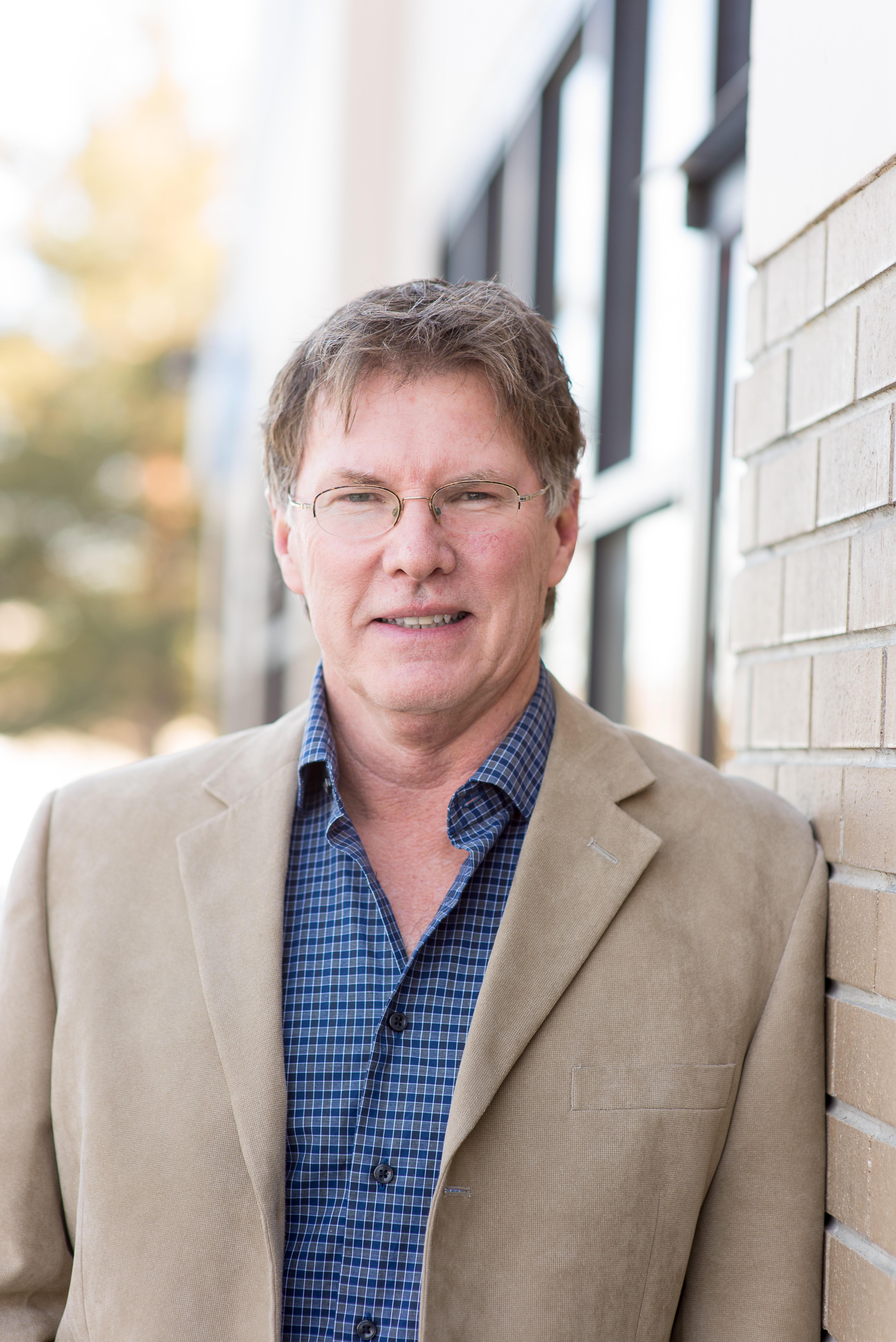
Patrick J. Rydell, Ed.D., CCC-SLP, is the Founder and Director of the Rocky Mountain Autism Center, Inc. and Autism On Call, LLC, in Lone Tree, Colorado. With more than 38 years of practice (“on the floor”) in the field of Autism Spectrum Disorder (ASD), he has provided international and national trainings, workshops, consultations and program development to governmental agencies, medical facilities, universities, school districts, professionals and families. His doctorate was earned through a National Institute of Health Leadership in Autism grant (1989) and he has a double master’s degree in speech pathology and special education with a program emphasis in early childhood and autism spectrum disorder. Dr. Rydell is a U.S. Fulbright Senior Specialist Grant recipient (2005). Dr. Rydell is the co-author of the SCERTS Model (Prizant, Wetherby, Rubin, Laurent & Rydell, 2006) and author of the Learning Style Profile for Children with Autism Spectrum Disorder (Rydell, 2012) and Autism On Call Educational Series (Vimeo, 2017). Dr. Rydell has also co-authored 5 book chapters and numerous peer-reviewed research articles on topics related to autism spectrum disorders. He is currently developing ASD programs across Asia, Central Asia, and South America based on the LSP approach.
Speaker Disclosures:
Financial — Patrick Rydell is a presenter of online CE courses sponsored by Northern Speech Services; receives royalty payments.
Financial — Patrick Rydell is the author of Learning Style Profile Autism Activity Book; receives royalty payments.
Financial — Patrick Rydell is the author of Learning Style Profile for Children with Autism Spectrum Disorder, published by Rocky Mountain Autism Center (January 21, 2013); receives royalty payments.
Nonfinancial — Patrick Rydell has no relevant nonfinancial relationships to disclosure.
Intended Audience / Accreditation

This program is offered for 0.6 ASHA CEUs (Intermediate Level; Professional Area).

Intended Audience
- Speech-Language Pathologists
ASHA CEUs:
Northern Speech online courses are registered with ASHA and are offered for ASHA CEUs. The number of ASHA CEUs is noted above. Note that 0.1 ASHA CEU = 1 contact hour = equals 1 CEE.
Earning ASHA CEUs and the ASHA CE Registry:
To earn CEUs from this course and have ASHA CEUs submitted to the ASHA CE Registry, course participants must satisfy each of these requirements:
- Participants must meet the eligibility requirements to earn ASHA CEUs (see below).
- Participants must indicate – prior to course completion – their intent for Northern Speech to submit this course to ASHA.
- Participants must complete/view this course in its entirety.
- Participants must complete the course post test with a minimum of 80% accuracy.
- After successful completion of the post test and completion of the course evaluation, a certificate of course completion is presented to the participant electronically via PDF.
- For those participants who indicated their intent for the ASHA CE Registry, course completion status will be submitted by Northern Speech to ASHA within 45 days of the course completion date.
Eligibility To Earn ASHA CEUs:
Attendees must meet at least one of the following conditions in order to be eligible to earn ASHA CEUs:
- Current ASHA Member.
- ASHA Certificate of Clinical Competence (CCC) Holder.
- Licensed by a state or provincial regulatory agency to practice speech-language pathology (SLP) or audiology.
- Credentialed by a state regulatory agency to practice SLP or audiology.
- Credentialed by a national regulatory agency to practice SLP or audiology.
- Engaged in a Clinical Fellowship under the supervision of an individual with their ASHA CCC.
- Currently enrolled in a master's or doctoral program in SLP or audiology.
If an attendee is not an ASHA member or CCC holder but meets any of the above criteria, they may inform the ASHA CE Registry of their eligibility by visiting this site.
ASHA CE Registry:
During the enrollment process, if you select to receive ASHA credit for this course and if you provide your ASHA number, Northern Speech will automatically submit your CEU information to the ASHA CE Registry after successful course completion (80% on post test). This submission happens once per month, during the first week of the month. For example, if you complete your course on November 7th, Northern Speech will submit all November online course CEUs to ASHA during the first week of December. When ASHA inputs the information into their database, they will mark the course as completed on the last day of the month in which it was completed, so November 30th using this example. The certificate of completion available for you to print immediately, however, will reflect the actual completion date, November 7th in this example. Due to ASHA processing procedures please allow 2-3 weeks, from the submission date, for the course to appear on your ASHA transcript.
Licensing Boards: Most state licensing boards DO accept CEUs earned online (usually classified as home-study credits). Some state boards do, however, place a limit to the number of credits that can be earned via home study/online courses. For the most current information, we suggest that you contact your licensing board or agency to verify acceptance policies and/or any credit limits related to home-study courses prior to registering for this course.
Additional accrediting agencies by which Northern Speech is an approved CE provider:
- California: NSS is approved as a provider of continuing education by the California Speech-Language Pathology & Audiology Board. Provider #PDP4. Online CEU limits may apply; please contact SLPAHADB for current online CEU acceptance policies.
- Iowa: NSS is approved as a provider of continuing education by the Iowa Board of Speech Pathology and Audiology Examiners. Provider #169.
- Kansas: NSS is approved as a provider of continuing education by the Kansas Department of Health and Environment. Provider #LTS-S0005.
- Florida: NSS is approved as a provider of continuing education by the Florida Speech-Language Pathology and Audiology Board. Provider #SPA-026.
- New Jersey: NSS is approved as a provider of continuing education by the New Jersey Department of Education. Provider #1654.
Frequently Asked Questions
Customer Support: Please phone 888.337.3866 or email info@northernspeech.com.
Course Completion Timeframe:
You have unlimited time to complete our online courses. You may log off and log on as often as you’d like to in order to complete all sections of a course.
However, completion dates are based on Eastern Standard Time. Therefore, if you need your CEUs by a certain date, be sure to complete the course test before 11:59pm EST on that date. For example, if you need CEUs before January 1st, you will need to complete the course test before 11:59pm EST on December 31st.
Content Access:
Access to course materials and content does not expire, even after completing the post test. You may continue to review course material by logging into your NSS account, clicking the My Online Courses tab, and then viewing your desired course.
Certificate of Completion:
On successful completion of the post test (80%), a certificate will be immediately available for download and/or printing. This certificate will include your name, date of completion (based on Eastern Time Zone, USA/Canada), and number of contact hours (CEUs / CEEs). Please note that CEUs are awarded on the date of successful test completion, not the date of course enrollment. Please ensure that you successfully complete the post test prior to any licensure renewal dates.
ASHA CE Registry Submission:
During the enrollment process, if you select to receive ASHA credit for this course and if you provide your ASHA number, NSS will automatically submit your CEU information to the ASHA CE Registry after successful course completion (80% on post test). This submission happens once per month, during the first week of the month. For example, if you complete your course on November 7th, NSS will submit all November online course CEUs to ASHA during the first week of December. When ASHA inputs the information into their database, they will mark the course as completed on the last day of the month in which it was completed, so November 30th using this example. The certificate of completion available for you to print immediately, however, will reflect the actual completion date, November 7th in this example. Due to ASHA processing procedures please allow 2-3 weeks, from the submission date, for the course to appear on your ASHA transcript.
Purchase Orders:
Purchase orders are currently not accepted for online orders, if you wish to submit a purchase order please do so at info@northernspeech.com or fax to 888-696-9655.
What is an Online Course?
Our Online Courses consist of video, audio, and/or text content and are offered for ASHA CEUs. Unlike a webinar, which requires participants to be logged on and at a computer at specific times, our Online Courses are available to you at any time, from any device, via your NorthernSpeech.com online account. You may work at your own pace and start and stop your course as you wish. Your course will conclude with a short post test. On successful completion of the post test (>80%), a printable certificate of completion is presented to you.
Receiving CEUs:
Northern Speech is an ASHA CE Provider and our online courses are registered with ASHA and offered for ASHA CEUs. Please note that successful completion of the online post test is required prior to the awarding of CEUs. Please contact your state licensing board for acceptance policies related to CEUs earned online. Please note that courses offered for university students are not applicable for CEUs.
Registering for an online course:
You may browse all online courses by clicking the Continuing Education tab above, then Online Courses. Once you find a course, click Enroll Now, and you will be asked to either log into your existing Northern Speech account or create a new online account. Once you’ve entered your account information and provided your credit card payment, your course will be immediately available to you.
Accessing your purchased course or returning to a purchased course:
You will be able to access your online course by logging into your Northern Speech account and then clicking the My Online Courses tab on your profile screen. Click the course you would like to start or to resume. From there, proceed through the course sections until you are ready to complete the post test. You do not have to complete your course all at once. You may log on and off as you wish.
Testing requirements:
Each online course concludes with a post test consisting of multiple choice or true & false questions. Scores of 80% or greater are required for successful course completion and awarding of CEUs. You may revisit course materials and retest as needed to achieve a passing score.
Number of CEUs offered:
We offer courses from 1 to 21 contact hours. Each course will note the number of CEUs offered. Please note that 0.1 CEU = 1 contact hour = 1 CEE.
State licensing boards and online CEUs:
NSS is an ASHA CE Provider and most state licensing boards DO accept ASHA CEUs earned online (usually classified as home-study credits). Some boards do, however, place a limit to the number of CEUs that can be earned via home study/online courses. For the most current information, we suggest that you contact your licensing board or agency to verify acceptance policies and/or any CEU limits related to home-study courses prior to enrolling in an online course.
Course formats:
Our course formats include: text, audio, video, and PowerPoint with author narration. Each course will note the format on the course description page. Most courses include closed captioning.
Course handouts:
Most of our online courses provide a link to download the accompanying handout as a PDF file.
Group discounts:
Groups of 3 or more are eligible for a 20% discount on each registration on most of our online courses. To receive this discount, registrations need to be processed together via the "Group Rates" tab on the Online Course of your choice.
Computer requirements:
For our online courses to function best, we recommend that you update your computer to include the newest version of your Internet browser (Safari, Chrome, Firefox, Edge, Internet Explorer, etc.) and newest version of your computer's operating system. Also a high-speed Internet connection is recommended (cable or DSL). Speakers or headphones will be required for many of our courses as many contain audio components.
Course Cancellation Policy:
A purchased online course can be exchanged, refunded, or transferred to another individual if contact is made with NSS (via phone or email) within 30 days of purchase and the course materials have not been viewed or downloaded.
Special Needs:
Please click here for any special needs requests, and we will do our best to accommodate them.
| Contact Us |


